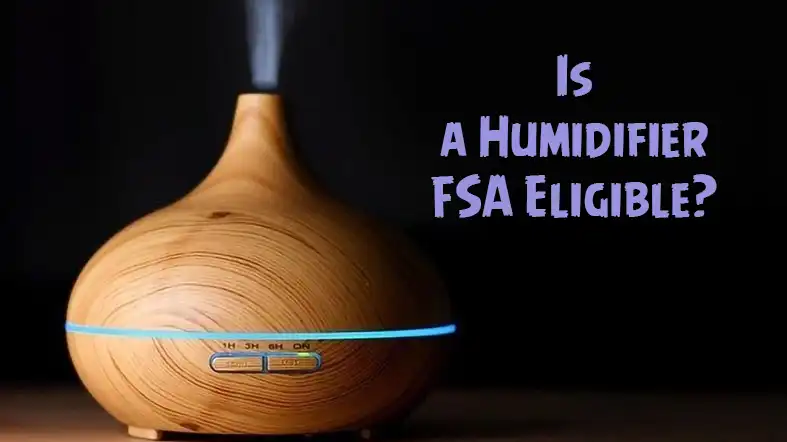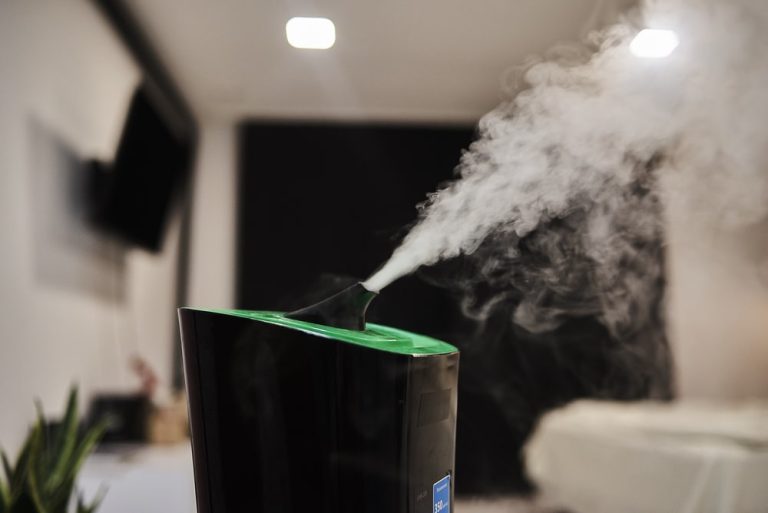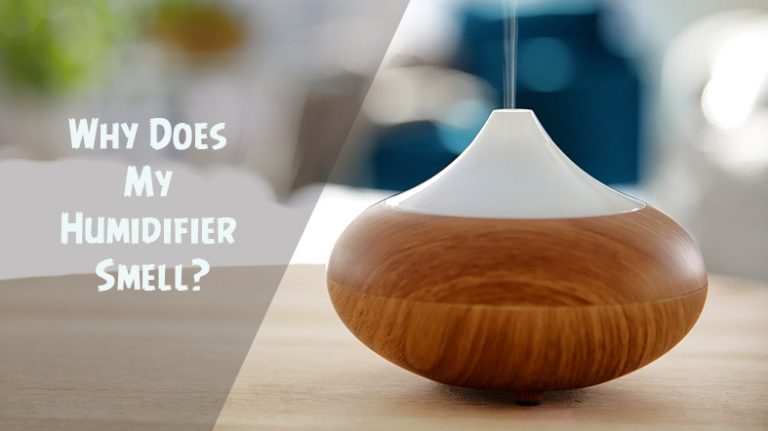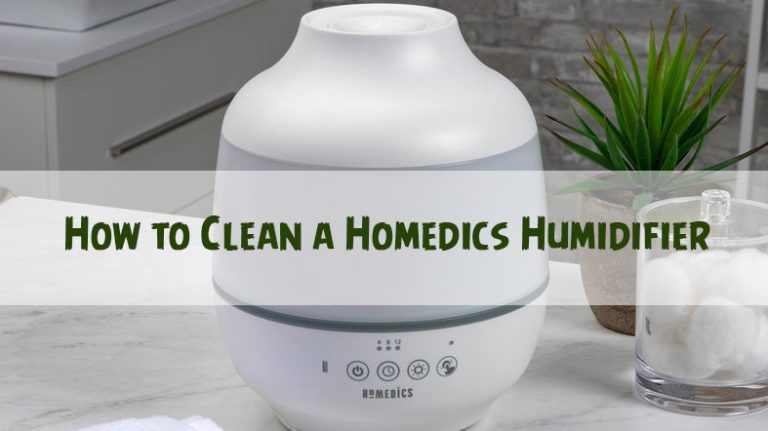Is a Humidifier FSA Eligible: A Comprehensive Guide
In today’s world, health and well-being have become paramount. We’re constantly searching for ways to improve our lives and make our surroundings more comfortable. One such way is through the use of humidifiers. These handy devices can work wonders in enhancing the quality of air in our homes.
But here’s the burning question: Can you use your Flexible Spending Account (FSA) to cover the cost of a humidifier? In this comprehensive guide, we’re going to delve deep into the world of FSAs, humidifiers, and their eligibility, so you can breathe easy.

Understanding Humidifiers
Before we dive into the nitty-gritty of FSA eligibility, let’s get familiar with humidifiers themselves.
Types of Humidifiers
Humidifiers come in various shapes and sizes, each with its own unique way of adding moisture to the air. The most common types include:
Ultrasonic Humidifiers: These use ultrasonic vibrations to create a fine mist of water droplets.
Evaporative Humidifiers: They work by blowing air through a moistened filter or wick.
Steam Vaporizers: These generate steam by heating water, which is then released into the air.
Impeller Humidifiers: Using a rotating disk, they turn water into a fine mist.
Health Benefits of Using a Humidifier
Humidifiers offer a range of health benefits. They can:
Relieve Dry Skin: Dry air can sap moisture from your skin. Humidifiers help keep your skin hydrated and may alleviate conditions like eczema.
Ease Respiratory Issues: Adding moisture to the air can help soothe dry throats and alleviate symptoms of respiratory conditions, such as asthma and allergies.
Prevent Nosebleeds: Dry air can cause nosebleeds. A humidifier can maintain the right moisture level in your nasal passages.
Improve Sleep: Sleeping in a comfortably humidified room can lead to better sleep quality.
Now that we’re acquainted with humidifiers, let’s move on to the heart of the matter—FSA eligibility.
Understanding FSA Eligibility
Here in this section, we’ll explore the FSA eligibility for a humidifier –
Definition of Eligible Expenses
To determine if a humidifier is eligible for FSA coverage, we need to understand what qualifies as an eligible expense. Generally, eligible expenses include medical, dental, and vision care costs that are necessary for the diagnosis, treatment, or prevention of a medical condition.
Role of FSA Administrators
FSA plans are administered by employers or third-party administrators. They oversee the management of FSA funds, ensuring they are used in compliance with IRS regulations. It’s important to familiarize yourself with your FSA administrator’s guidelines regarding eligible expenses.
Tax Benefits of FSAs
One of the major perks of using an FSA is the tax advantage. By contributing to your FSA, you reduce your taxable income, which can lead to significant savings on your annual tax bill. It’s like getting a discount on your medical expenses.
Eligibility Criteria for FSA
Now, let’s get down to the specifics of humidifier eligibility under your FSA.
1. Medical Necessity
In most cases, for a humidifier to be considered eligible for FSA coverage, it must be deemed medically necessary. This means that a qualified medical professional, such as your doctor, must determine that a humidifier is essential for the treatment or management of a specific medical condition.
2. Prescription Requirement
Some FSA plans may require a prescription from your healthcare provider to cover the cost of a humidifier. It’s crucial to check with your FSA administrator to determine if this requirement applies to your plan.
3. Eligible FSA Expenses
The IRS provides guidelines on what qualifies as an eligible expense. While the regulations can be extensive, they generally encompass medical services, equipment, and supplies that are primarily for the prevention or treatment of a medical condition. If your doctor prescribes a humidifier as part of your treatment plan, it may fall under this category.
Humidifiers and Medical Conditions
Now, let’s explore the medical conditions that may benefit from the use of a humidifier and what your doctor might recommend.
Conditions That May Benefit from a Humidifier
A humidifier can be a valuable addition to your home if you suffer from:
Dry Skin: Especially during the winter months, dry air can lead to parched skin. A humidifier can help maintain a comfortable level of humidity.
Respiratory Issues: If you have asthma, allergies, or frequent colds, a humidifier can ease congestion and soothe irritated airways.
Sinus Problems: Chronic sinusitis sufferers often find relief with increased indoor humidity.
Doctor’s Recommendations
If you’re unsure whether a humidifier is right for you, consult your healthcare provider. They can evaluate your specific health needs and advise you on whether a humidifier should be part of your treatment plan. If your doctor determines that a humidifier is medically necessary, they may provide you with a prescription.
How to Use Your FSA for a Humidifier
Assuming you meet the eligibility criteria, here’s a step-by-step guide on how to use your FSA funds to purchase a humidifier.
1. Purchasing Process
First, you’ll need to select a humidifier that suits your needs. Ensure that the humidifier you choose meets the requirements set forth by your FSA plan, such as medical necessity or prescription, if applicable.
2. Reimbursement Process
After purchasing your humidifier, you’ll need to request reimbursement from your FSA. Keep all relevant documentation, including receipts, invoices, and your doctor’s prescription, if required.
3. FSA Debit Card Usage
Some FSA plans to issue debit cards that can be used to pay for eligible expenses directly. If your plan provides one, you can use it to purchase a humidifier, provided it meets the plan’s criteria.
Frequently Asked Questions (FAQs)
Why would I need a humidifier?
Humidifiers can help alleviate dry skin, ease respiratory issues, prevent nosebleeds, and improve sleep quality by adding moisture to the air in your home.
Are all humidifiers eligible for FSA coverage?
Not necessarily. For a humidifier to be eligible for FSA coverage, it usually needs to be considered medically necessary and meet your FSA plan’s requirements.
Do I need a prescription to use my FSA for a humidifier?
Some FSA plans may require a doctor’s prescription for a humidifier to be eligible for coverage. Check with your FSA administrator for specific plan requirements.
Can I use my FSA funds to buy a humidifier for non-medical reasons?
In most cases, FSA funds should be used for eligible medical expenses. Using them for non-medical purposes may not be allowed under FSA rules.
How do I prove that a humidifier is a medical necessity?
Your healthcare provider will typically need to provide a written recommendation or prescription for the humidifier, stating that it is medically necessary for your specific condition.
Are there any restrictions on the types of humidifiers I can purchase with my FSA?
FSA plans may have varying criteria for eligible humidifiers. It’s essential to check with your FSA administrator to ensure the humidifier you choose meets their requirements.
What documentation do I need when using my FSA for a humidifier?
Documentation requirements can vary by FSA plan, but generally, you should keep receipts, invoices, and any required prescriptions or recommendations from your healthcare provider.
What happens to unused FSA funds at the end of the year?
Typically, unused FSA funds at the end of the plan year may be forfeited. However, some plans offer a grace period or allow you to carry over a portion of your funds to the next year. Be sure to understand your plan’s specific rules.
Conclusion
In conclusion, the eligibility of a humidifier for FSA coverage depends on various factors, including medical necessity and your specific FSA plan’s requirements. If you believe a humidifier is essential for your health, consult with your healthcare provider and your FSA administrator to navigate the process smoothly. By doing so, you can breathe easier in more ways than one.
![[Answered] Can a Diffuser Be Used as a Humidifier for Plants?](https://airanswer.com/wp-content/uploads/2023/09/Can-a-Diffuser-Be-Used-as-a-Humidifier-for-Plants-768x431.webp)


![Should I Leave Fan on with Humidifier [Answered & Explained]](https://airanswer.com/wp-content/uploads/2023/08/Should-I-Leave-Fan-on-with-Humidifier-1-768x431.jpg)
![Why is My Vicks Humidifier Spitting Out Water [Explained]](https://airanswer.com/wp-content/uploads/2023/08/Why-is-My-Vicks-Humidifier-Spitting-Out-Water-2-768x431.jpg)
